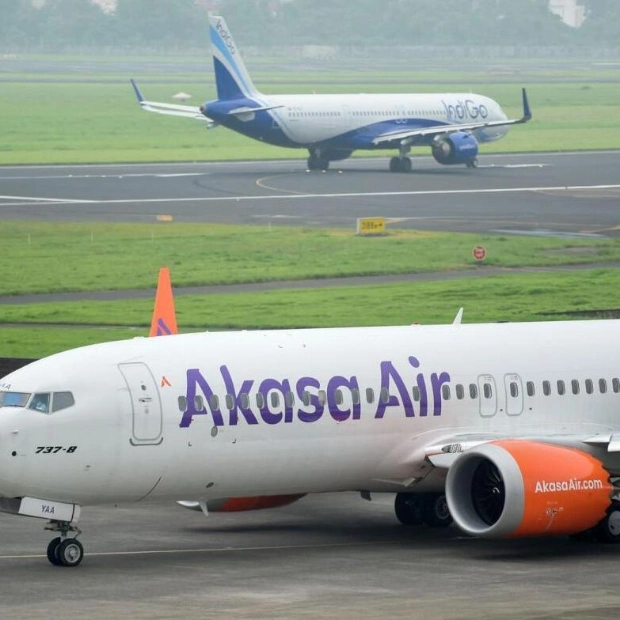ARTIFICIAL INTELLIGENCE (AI) is a key component in the UAE's strategy for economic diversification, fostering innovation and efficiency across various sectors. The economic impact of AI in the Middle East is significant, with the Middle East and North Africa (Mena) region projected to gain an additional value of $320 billion by 2030. The UAE is set to spearhead this change, potentially contributing up to 14% of its GDP by 2030. The oil and gas industry, a fundamental sector in the UAE, has utilized AI effectively. For instance, Abu Dhabi National Oil Company (Adnoc) created an extra $500 million in value in 2023 through enhanced drilling and smarter reservoir management. AI continuously assesses extensive historical data, refining its models to boost efficiency and productivity. The transportation sector is undergoing a transformation with Dubai Ports (DP World) and Kizad pioneering AI adoption. These entities are revolutionizing traditional practices by optimizing operations and logistics. In the airline industry, Emirates airline uses AI for predictive maintenance and scheduling, aiming for potential annual savings of $14 billion. AI's capacity to analyze vast datasets and learn from human interactions ensures improved decision-making and ongoing enhancement. Retail leaders like LuLu Group International and Carrefour UAE are transforming shopping experiences through AI. Carrefour's cashier-less stores and LuLu's optimized operations demonstrate AI's influence on sustainability and efficiency. By analyzing extensive customer data and learning from interactions, AI guarantees personalized shopping experiences and improved operational efficiency. The AI in retail market is forecasted to surpass $32.27 billion by 2030. In education, AI is revolutionizing learning delivery. Institutions like Aldar Academies use AI to personalize learning experiences, boosting student engagement and educational results. The AI in education market is anticipated to exceed $80 billion by 2030, highlighting its transformative potential. AI's ability to analyze student performance data and adapt learning materials accordingly is reshaping the educational landscape. The healthcare sector benefits from AI's data analysis capabilities for enhanced patient outcomes. Companies like Cerner Middle East and Africa employ AI to analyze patient data, predict health risks, and personalize treatment plans, resulting in better outcomes and reduced costs. AI's continuous learning from clinical interactions ensures increasingly accurate and effective healthcare solutions. AI is also transforming the insurance industry. Companies like Emirates Insurance use AI for predictive analytics, optimizing pricing strategies, and streamlining claims processing. This automation and enhanced decision-making could potentially cut operational expenses by up to 40% by 2030. By analyzing large datasets and learning from historical claims, AI aids insurers in making better-informed decisions, increasing customer satisfaction. The real estate sector views AI as a strategic tool. Major corporations like Emaar, Al Dar, and Nakheel Properties integrate AI for smart city solutions and efficient management of landmark projects. AI’s application in construction leads to improved project management, reduced errors and waste, and increased productivity. The AI in construction market is expected to exceed $80 billion by 2030. Given the UAE’s arid climate, food security heavily relies on science and technology. AI can transform farming by analyzing crop diseases, optimizing resource use, and predicting yields. Companies like Pure Harvest Smart Farms utilize AI to enhance productivity and minimize waste. The AI in agriculture market is expected to reach around $20.54 billion by 2027, offering significant opportunities for the UAE. The legal system in the UAE, with multiple jurisdictions like ADGM and DIFC, benefits from AI’s ability to streamline processes and enhance decision-making. Firms such as Al Tamimi & Company implement AI to improve accuracy and efficiency in legal services. By processing vast amounts of legal data and learning from case outcomes, AI simplifies complex legal processes and improves service quality. As the UAE continues to attract global AI and tech firms, the UAE government actively deploys AI for service transformation. Initiatives include the National Programme for AI (BRAIN), a new ‘Chief Executive Officer for Artificial Intelligence’ role, the UAE Council for AI overseeing integration, and the Artificial Intelligence and Advanced Technology Council (AIATC) positioning Abu Dhabi as a global AI hub.

Text: Lara Palmer
27.06.2024
AI's Impact on Various Sectors in the UAE and its Economic Projections





